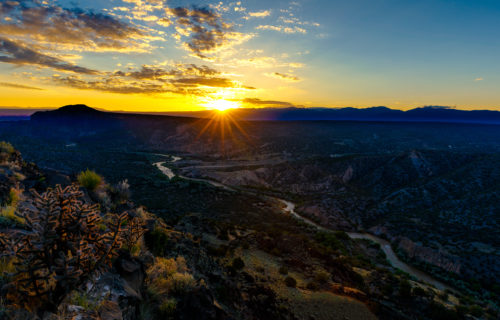Making a will is one of the most important steps you can take to protect your loved ones. At New Mexico Legal Group, we’ll help you create a will that reflects your wishes and gives you peace of mind.

Preparing a Will in New Mexico
Have you given any thought to what might happen when you die? If you have assets, children, a spouse, or a long-term partner, you should have a last will and testament. If you die before having this document in place, how your estate is distributed according to New Mexico law may or may not be the same as you would have wished.
If you have limited assets and no children, a simple will designating beneficiaries for your assets and belongings may be sufficient. If you have significant assets, minor children, beneficiaries with special needs, or a desire to keep beneficiaries’ inheritances in trust after you die, more extensive estate planning may be more appropriate.
What Should Be in Your Will in New Mexico
In addition to basic personal and family information, your will should clearly state what should happen to your assets after you die. All assets and belongings should not be specifically identified, things can change over time, but this document should clearly provide for the disposition of your complete estate—everything you do own when you die.
You’ll also need to appoint a personal representative (sometimes called an executor) of your estate. This could be your spouse or partner, an adult child, a family friend, or anyone else that you trust. If you have minor children, you also must choose a guardian. Unless the other parent is deceased, incarcerated, or otherwise deemed unfit, the other parent is generally to be awarded custody upon your death, even if you have named someone else as guardian in your will.
Keep in mind that your will in New Mexico won’t have any legal effect on assets that you own jointly with someone else, assets with beneficiary designations, or assets that were already held in trust when you die. These types of assets should be considered separately and coordinated with your estate plan so that your overall intentions are honored.
Quick Tip: Details About Medicaid Trusts
Do I Need a Will in New Mexico if I Have a Living Trust?
Absolutely, and here’s why. While a living trust serves as a central component of your estate plan, a pour-over will in New Mexico plays a critical supporting role. Together, they form a comprehensive strategy to safeguard your assets and carry out your wishes. A pour-over will acts as a safety net, ensuring that any assets or property not explicitly included in your living trust are seamlessly transferred into the trust upon your passing. This additional layer of protection helps prevent assets from being left out of your trust, which could lead to complications or unintended distributions. Furthermore, this also designates guardianship for minor children, if applicable, and specifies the distribution of any assets not covered by the trust. By combining a living trust and a pour-over will, you create a cohesive estate plan that minimizes the risk of oversight or confusion, ultimately ensuring that your assets are transferred and distributed exactly as you intended.
Is a Will Better Than a Trust?
This is not one-size-fits-all and largely depends on your individual circumstances and goals. Each serves a distinct purpose in estate planning. Wills are relatively straightforward legal documents that allow you to specify how your assets should be distributed after your passing, among other things. They are often less expensive to create than trusts and can be suitable for simpler estates. On the other hand, trusts offer more flexibility and can provide various benefits, such as avoiding probate, maintaining privacy, and allowing for smoother asset management during incapacity. Trusts can be particularly advantageous for those with complex financial situations or specific wishes, such as asset protection or providing for beneficiaries with special needs. In many cases, a combination of both documents can be the most comprehensive approach to estate planning. Consulting with an experienced estate planning attorney can help you determine the most suitable strategy for your unique needs and objectives.
Why You Shouldn’t Draft Your Own Will
Estate planning and probate laws are detailed and complex. While there are DIY options for creating your own will in New Mexico, without legal education and experience, you are not in a position to know which laws apply to you and what happens if you inadvertently break them. Unfortunately, if a mistake is made, fixing the mistake after you die can be time-consuming, costly, or even impossible.
An attorney can ensure that your wishes are carried out legally, and can also make sure your will is legal and binding according to New Mexico law. For example, the will may not be enforceable unless it is signed in front of and by two witnesses and all signatures are notarized. If your will is not properly executed, it may as well not exist.
Not everyone needs a will. Generally, you do not need to worry about one if:
The deed to your home, your bank/financial accounts, your retirement accounts, your life insurance, and all other significant assets you own when you die already name a beneficiary upon death;
- You do not have minor children; and
- Your wishes align with the New Mexico statutory framework for intestate succession.
If you aren’t sure whether or not you need a will in New Mexico, we can help. Contact us today for a consultation to discuss your situation. Our Albuquerque estate planning attorneys can let you know if a will is unnecessary, or if there are better ways to ensure your limited assets go to your desired beneficiaries.
Free Case Evaluation
"*" indicates required fields
Frequently Asked Questions
What’s the difference between wills and trusts?
There are two fundamental differences between wills and trusts. First, a will only becomes effective upon your death, while a trust becomes effective immediately upon execution. Second, a will does nothing to avoid probate at your death, while property that is already in a trust when you die does not need to be probated. Each tool has its place and can be the best approach depending on your individual circumstances.
Do I need an attorney for a will?
There is no law requiring that an attorney be involved in the preparation or execution of a will. However, to make sure that your will accurately reflects your wishes and is legally sufficient and properly executed, we recommend that you have an attorney assist you.
What are the important things to put in a will?
At a bare minimum, your will should specify who is to inherit your assets when you die and who is to act as personal representative (executor) of your estate. If you have minor children, your will should also nominate a guardian to raise the children until they are adults. Wills can be very complex and contain many other provisions, but these are the most important.
How do you amend a will?
To amend a will, you need to execute a “codicil” (will amendment) with the same formalities required of executing your will. If the changes are extensive, you may be better off executing a whole new will which revokes the prior will and takes its place.

Need Legal Assistance With a Will in New Mexico?
Call New Mexico Legal Group at 575.339.2100 or get started with a free case evaluation.
Free Estate Planning Case Evaluation
"*" indicates required fields
